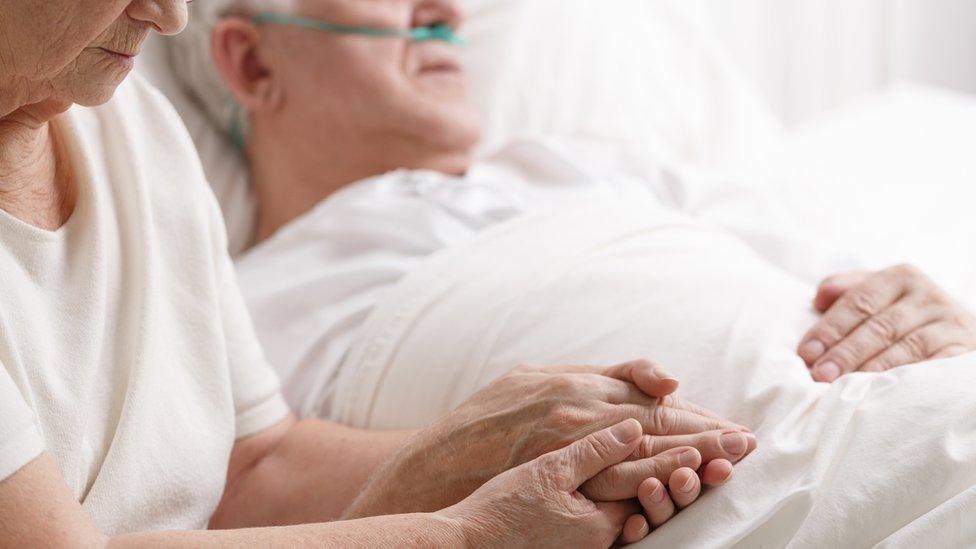Assisted dying: Woman left paralysed by fall wants the law changed
- Published
Assisted dying: 'I'm more scared of pain than I am of death itself'
A fall turned Sharon Johnston from someone with a zest for life into someone who wants to die.
The 59-year-old, who has been told she can never walk again, is determined to find a way of travelling to Switzerland where she'll ask doctors to help her end her life.
Peers will debate an Assisted Dying Bill this week in the House of Lords.
Campaigners against the proposed law change are worried it could leave some patients vulnerable to coercion.
The fall which changed Sharon's life could have happened to anyone, but that moment at her home in Aberystwyth three years ago changed her life forever.
"I decided to go upstairs and wash and change, put my PJs on early," she said.
"I must have turned to come downstairs and I lost my footing and went headfirst down and crashed into the bottom of the stairs. And then that was it - I just couldn't move."
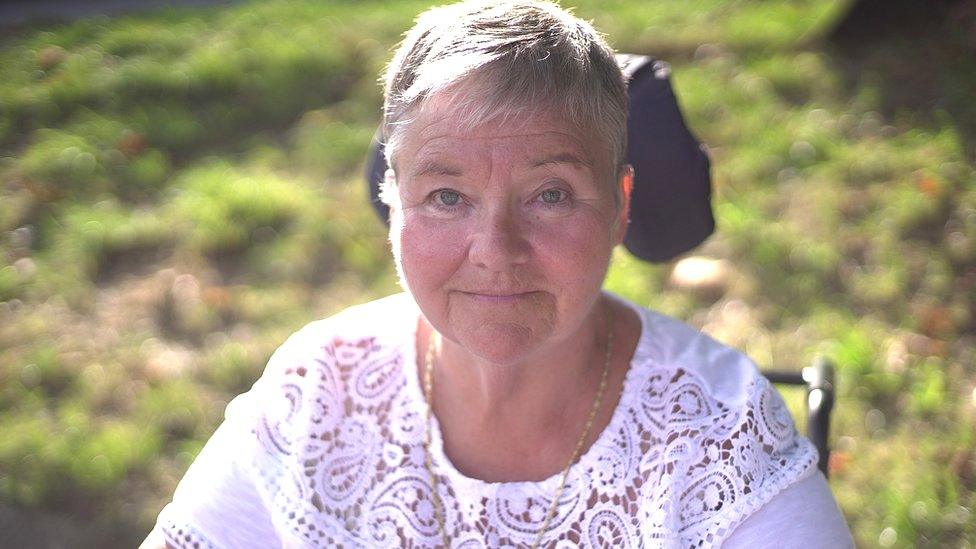
Sharon Johnston says nothing will change her mind about wanting an assisted death
'No botched suicide'
As a single person with no close family Sharon, who used to run a pub and worked in a bookmaker's, has seen her dreams taken away.
She loved travelling and wanted to see more of the world when she retired. Instead, she now needs carers to help with every aspect of her daily life.
The injuries sustained in the fall left her with some movement in one hand, allowing her to operate her specially adapted wheelchair.

Sharon says her carers are fantastic, but her life is "not a fun way to live"
Sharon, who lives in an adapted flat, said she is "not depressed at all" and has praise for her carers. But her ultimate aim remains an assisted death - something which is currently illegal in the UK.
"I go out in the town and I can get about. It's not that like I'm trapped in bed or bedridden. But I don't want the care," she said.
"Physically I can't do a suicide, I can't take an overdose of medication because it's all done with the carers in a secure medical box. I don't want to do a botched suicide," she said.
Threat of arrest
Sharon has joined various right-to-die groups as well as Dignitas and is planning to pay around £14,000 to travel to Switzerland where doctors are allowed to assist certain patients to die.
But she cannot get there from her home in Ceredigion alone, and knows that anyone who helps her make the trip from Wales could be arrested and prosecuted for helping her die.
"I am worried about that, very worried but I know the person who might assist me has got the courage," said Sharon.
"They will be OK, I know they're doing it for me and helping me for no gain whatsoever. The law needs to be changed."
On 22 October the Assisted Dying Bill will have its second reading in the House of Lords.
It proposes that only terminally ill patients with full mental capacity who are not expected to live more than six months would be eligible to apply for an assisted death.
Two independent doctors and a High Court judge would have to determine that the patient has come to the decision themselves, and has not been coerced and only then could they be prescribed lethal medication - which they'd have to take themselves.
It's a piece of legislation that faces strong opposition. Previous attempts to introduce similar laws have all been defeated.
'I still want to be here'
Nikki Kenward has long campaigned against assisted dying.
Thirty years ago she became paralysed by Guillain-Barre Syndrome. She was taken to hospital but deteriorated rapidly. Her son was just a year old at the time.
Nikki told BBC Wales Investigates: "By the next day my entire body had stopped moving everything. And I was left with just my right eye working so I couldn't breathe. I couldn't speak.
"I had a tracheotomy because I had to go onto a breathing machine and I had that for about four-and-a-half months."
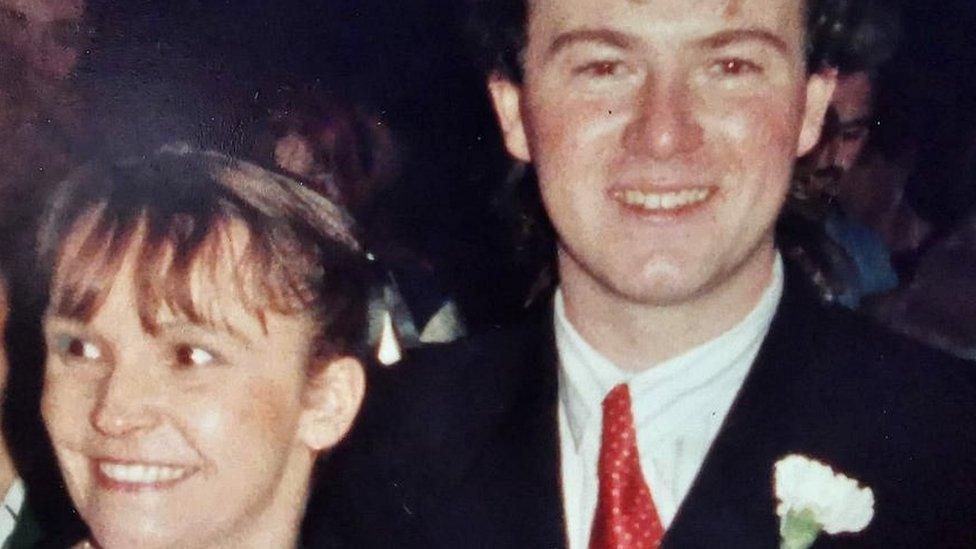
Nikki Kenward says she wants to stay alive to be with her husband Merv and her son
Nikki, who lives in Shropshire near the Welsh border, said: "I felt very definitely I still want to be alive, I must be here for my son and I must be here for Merv (her husband.)
"I didn't want to die and yet if you had asked me that before it happened, I would have said, If anything like that happens to me, I don't want to live.
"Boy, did I have a lesson to learn."
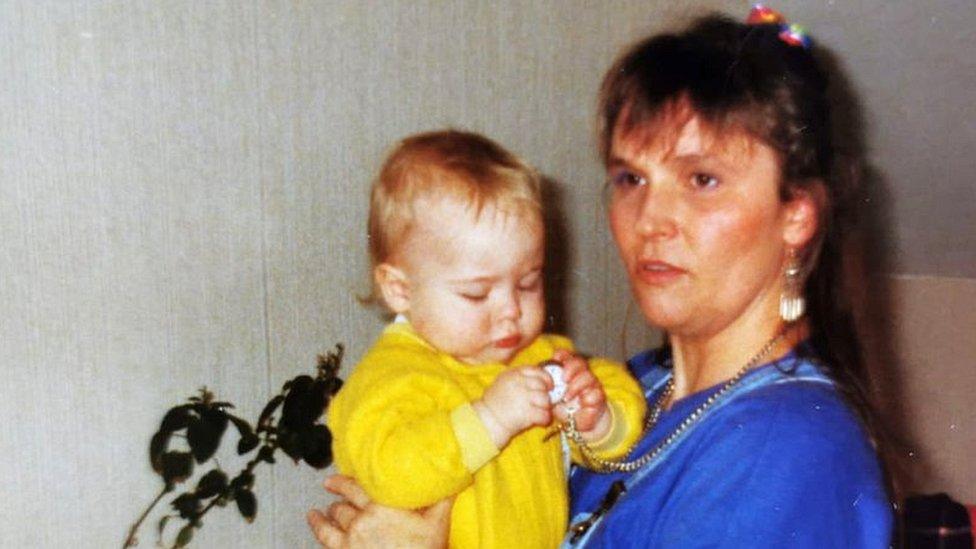
Nikki Kenward was a young mother when she became paralysed
A campaigner for disability rights and against assisted dying, Nikki does not believe doctors should be allowed to help terminally ill patients die.
"It's not just about you," she said. "It is about the door that will open for other people who are seen as less worthy.
"There is not enough in society that says if you're disabled, or old, for God's sake, that means you matter.
"It [assisted dying] stops you mattering, because you can just be got rid of. And then that will change the way we see each other. It's too dangerous."
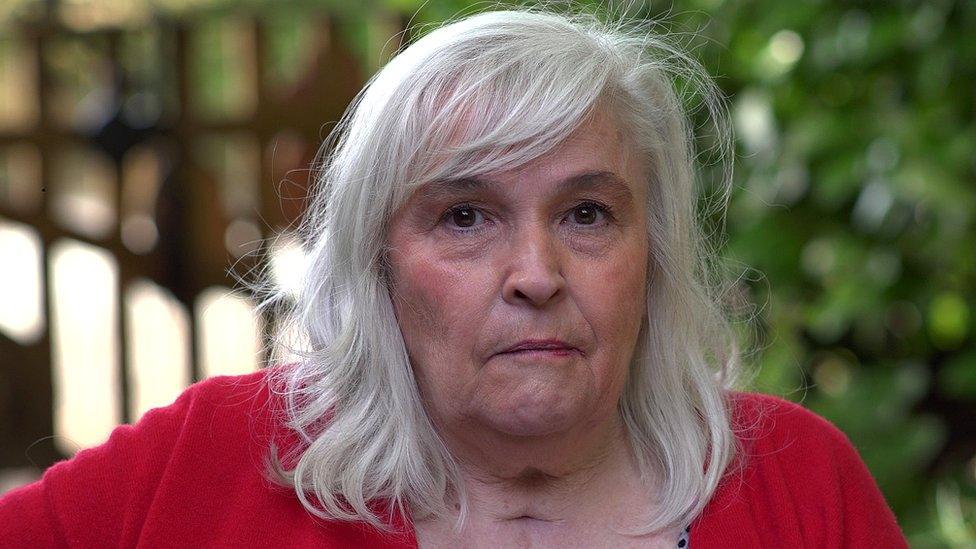
Nikki Kenward says making assisted dying legal is "too dangerous"
'Doctors will resign'
The British Medical Association has now moved to a position of neutrality on Assisted Dying.
Baroness Ilora Finlay of Llandaff - a Professor of Palliative Medicine - says she will be voting against the bill.
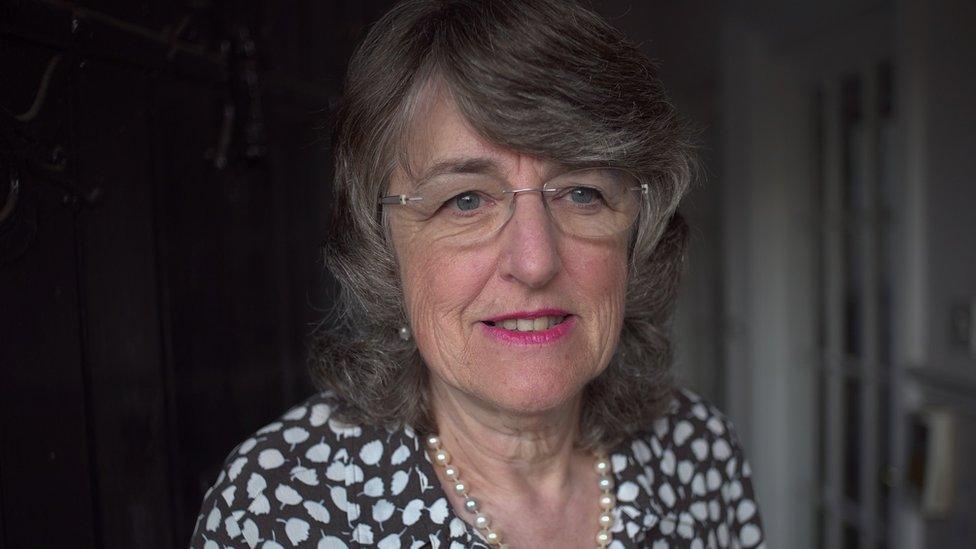
Baroness Finlay says the Assisted Dying Bill does not offer enough protection for people who might be coerced
She said: "I don't see in this bill anything to detect the rogue doctor, who is quite happy to get rid of a patient a bit earlier.
"I don't see anything in this bill to check out that assessments are done properly. I don't see anything in this bill to make sure that coercion abuse behind closed doors is properly detected.
"I have had quite a lot of doctors say to me if this comes in, I'm off - It's hard enough already."
'Happy dream' of dying
Sharon knows that even if the bill does become law, it wouldn't apply to her because she is severely disabled and not terminally ill. But she wants the law widened to include people in her situation.
Meanwhile she is continuing to plan for her journey to Switzerland.
"I've got my provisional green light from Dignitas," she said. "I felt so relieved I got this far I cried when I opened it actually, it was fantastic.
"I know what's going to happen and the procedure and I'm quite happy with that. I have dreamt about it - getting on that plane, going - it's a happy dream.
"There's no counselling or anything that would make me change my mind."
BBC Wales Investigates When would you want to die? on Wednesday 20 October at 19:30 BST on BBC One Wales and afterwards on iPlayer.

WONDERS OF THE CELTIC DEEP: Encounter mythical coasts and extraordinary creatures
POETRY FOR PLEASURE : A mirror to reflect the most deep and difficult to articulate feelings

- Published3 August 2021
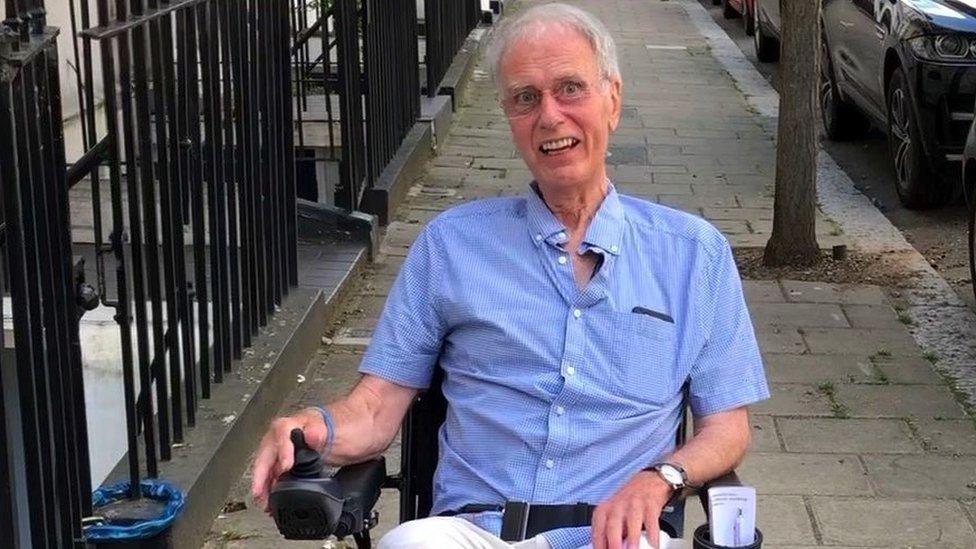
- Published5 July 2021
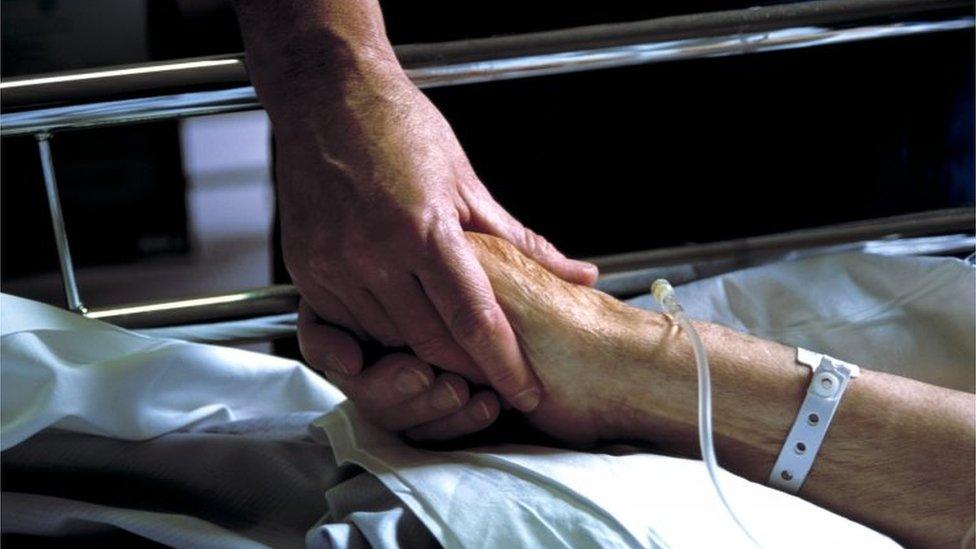
- Published1 April 2021
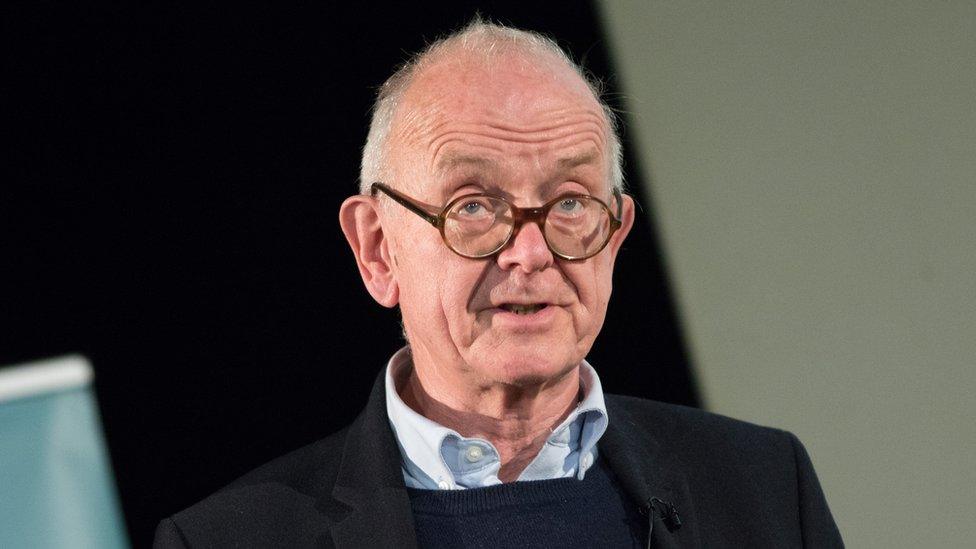
- Published21 January 2020
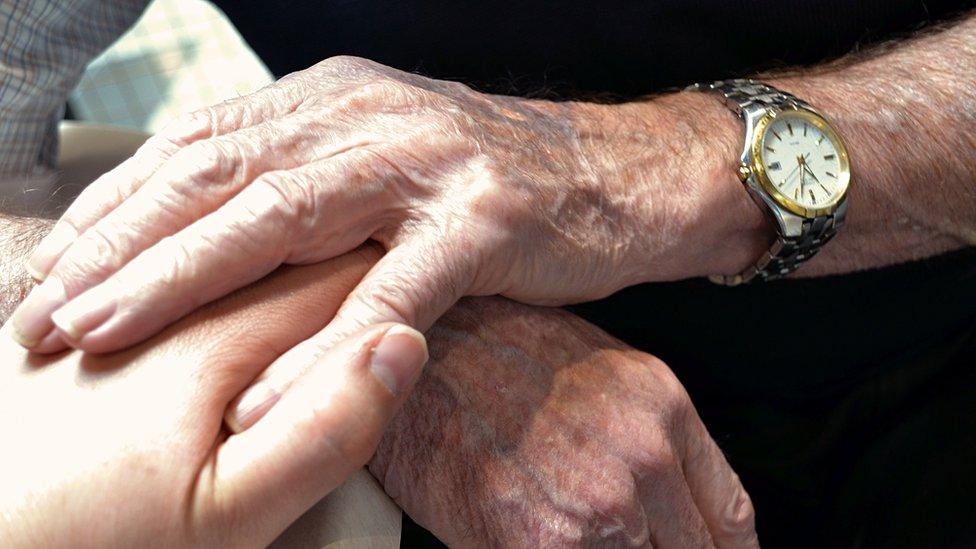
- Published11 September 2019
